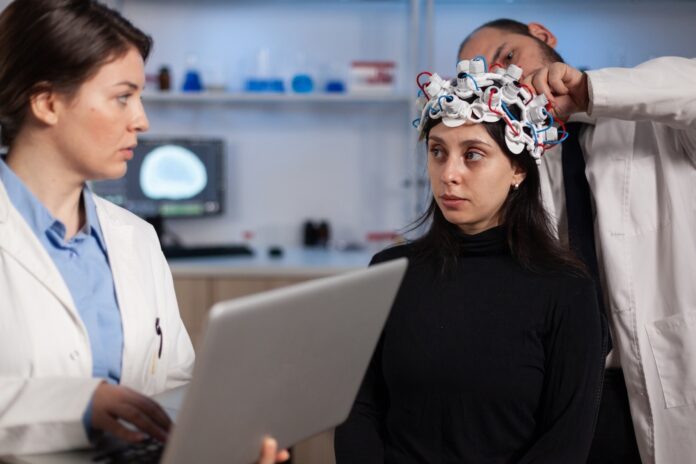A groundbreaking MIT study just sprinkled some seriously concerning findings about what ChatGPT is doing to our brains (at least, when we write essays)…
Here’s what happened:
- Researchers strapped EEG headsets on 54 people and had them write essays over four months.
- One group used ChatGPT, another used Google search, and a third went old-school with just their brains.
- ChatGPT users showed dramatically weaker brain connectivity… and when they later tried to write without AI, their brains looked more like novices than practiced writers.
So AI is like performance enhancing drugs, but instead of steroids that make your muscles all big, it shrinks them down; you can still perform, but only if you’re using.
The most concerning part was this: 83% of ChatGPT users couldn’t quote a single sentence from essays they’d written just minutes earlier. Now compare that to the brain-only group, where only 11% had trouble quoting their own work.
Even scarier, most people had no idea their thinking was being affected. The convenience feels seamless, but the cognitive trade-offs were invisible until researchers measured what was actually happening upstairs.
So what’s happening here? It’s the Google Maps effect, but for your thoughts. Studies have shown that GPS dependency weakens spatial memory, and that navigating on your own is good for your brain (seriously, try taking a new route home from work today; it’ll help your cognitive mapping!).
So just like London cab drivers have measurably larger hippocampi than GPS users, ChatGPT appears to be doing the same thing to our thinking muscles.
The MIT researchers coined a term for this: cognitive debt. You’re essentially borrowing against future cognitive capacity for short-term convenience.
We already know about “digital amnesia,” or how we’ve gotten worse at remembering information we can Google (TL:DR; you don’t remember actual info, you remember where to find it). But ChatGPT takes this way further. With Google, you at least read and process information. With ChatGPT, you’re outsourcing the thinking itself.
So what, should we all quit AI now? Not exactly. The researchers aren’t saying “never use AI.” But maybe we need GPS-style rules: use it to help find new destinations, but turn it off for the return trip.
Now get this: People who wrote without assistance first, then used ChatGPT, actually showed increased brain connectivity. They used AI more strategically while maintaining cognitive ownership.
So, think of using AI for cognitive work in terms of strength training: you can use a weight belt for heavy lifts, but if you wear it for every workout, your core will get weaker than an overcooked pasta noodle. Trust me, my core looks like a tortellini!
Editor’s note: This content originally ran in our sister publication, The Neuron. To read more from The Neuron, sign up for its newsletter here.
